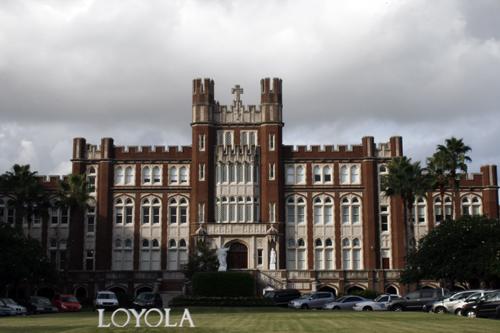New schedule changes discussed by university senate

Photo credit: The Maroon
September 28, 2017
The university senate gathered to discuss proposed class scheduling changes, including potential new two-week intersession periods in January and May, in an emergency meeting on Thursday. Sept. 28.
The terms, referred to as J-terms and May terms, would allow students to take a six-hour-long class Monday through Thursday for two weeks. To make room for these extra terms, the proposed schedule would shorten the fall and spring semesters to 14 weeks, instead of the current 16-week semester. The length of classes would increase to make up for the loss of those weeks.
Monday, Wednesday and Friday classes would increase to one hour, instead of the current 50 minutes. Monday and Wednesday classes and Tuesday and Thursday classes would be 90 minutes, instead of the current 75. Single-day classes would be three hours long. The possible time slots for classes would be reduced to between 15 and 19 slots available for students to schedule.
Faculty voiced many concerns about the proposed changes, including the ability to hold students’ attention and the effects on their mental health. The Biology Department questioned how the schedule would affect lab times. Other senators wondered how it would impact working students’ schedules outside of school.
Senators proposed alternatives to the schedule changes, such as shortening the Easter and Mardi Gras breaks or starting the fall semester one week early and returning for the spring semester one week later.
The university senate voted to postpone its decision until they have more time to explore possible options. The schedule for the fall 2018 semester must be finalized by March.








Yuichiro Oguma • Sep 30, 2017 at 10:38 am
Psychologically speaking, having long class is a bad option since average focus sustain is around 40 minutes. Having long hour doesn’t automatically give better academic achievement.
That is how Japanese became to have one of the worst productivity with one of the highest rate of suicide. Making it longer won’t solve the problem. Problem is at its efficiency.
By the way.
From a country with relatively short summer vacation(Japan, btw), I propose to shorten summer vacation instead. It’s unnecessarily too long and spring break is too short. I wouldn’t care much if summer break was a month short to be honest.
But don’t start semester early, it’s too hot. instead push sping summer a few weeks to June.
Michael Makovi • Sep 29, 2017 at 5:21 pm
This would make it harder for students to write term papers. Shortening the term from 16 to 14 weeks means there are 2 fewer weeks to write papers. Professors will have to reduce their expectations (e.g. reduce the required number of works cited), and students will graduate with less experience in writing papers. This will especially hurt students who are proceeding to graduate school.
Michael Makovi • Sep 29, 2017 at 5:20 pm
This would make it harder for students to write term papers. Shortening the term from 16 to 14 weeks means there are 2 fewer weeks to write papers. Professors will have to reduce their expectations (e.g. reduce the number of required number of works cited), and students will graduate with less experience in writing papers. This will especially hurt students who are proceeding to graduate school.
Retha Bell • Sep 29, 2017 at 11:51 am
No no no. Too much material pushed on the student. Also, some students have jobs, leaving no room for rest or study. This University is not easy. The material is much more difficult than public institutions. And last, but most important, you may be setting up our youth for failure, or mental stress at their tender age for depression, and I mean serious depression. I have living proof in my own family. I leave you with the question—WHY????